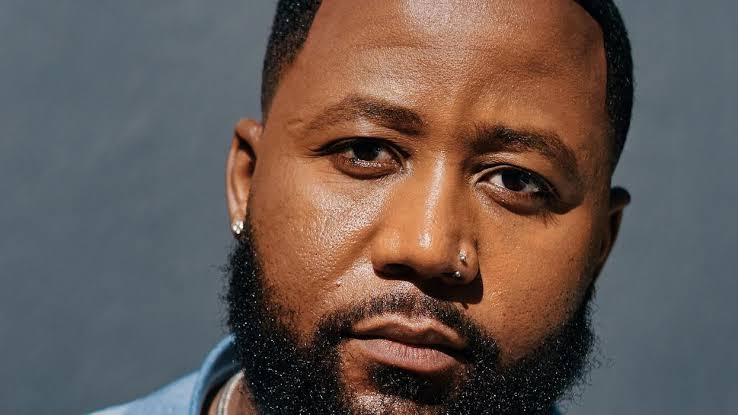Understanding South African Citizenship
Before diving into the application process, it's important to understand the different ways one can acquire South African citizenship. There are three primary methods: by birth, descent, and naturalization.
1. Citizenship by Birth: If you were born in South Africa to South African parents or legal residents, you’re automatically a citizen.
2. Citizenship by Descent: If you were born outside South Africa but have at least one parent who is a South African citizen, you can acquire citizenship by descent.
3. Citizenship by Naturalization: This is for those who have lived in South Africa for a significant period and meet certain criteria.
Eligibility for Citizenship by Naturalization
To apply for citizenship by naturalization, you must meet specific requirements. These include:
- Residency: You must have lived in South Africa for a continuous period of five years on a permanent residence permit.
- Good Character: You need to provide evidence of good character, usually through police clearance certificates.
- Language Proficiency: You should be proficient in one of the official languages of South Africa.
- Intention to Permanently Reside: You need to show your intent to permanently reside in South Africa.
- Spousal Citizenship: If married to a South African citizen, you can apply after two years of permanent residency.
Step-by-Step Guide to Applying for South African Citizenship
Now that you understand the basics, let’s walk through the detailed steps to apply for South African citizenship.
Step 1: Gather Required Documents
Before starting your application, make sure you have all the necessary documents. This includes:
- Your permanent residence permit.
- A valid passport.
- Birth certificate.
- Proof of residence.
- Marriage certificate (if applicable).
- Police clearance certificate.
- Language proficiency proof.
Step 2: Complete the Application Form
The main form for citizenship application is the DHA-175. You can get this form from the Department of Home Affairs office or download it from their official website. Fill in the form accurately and honestly.
Step 3: Submit Your Application
Once your form is completed and you have all your documents, you need to submit your application. This can be done at your nearest Department of Home Affairs office. It's advisable to make an appointment beforehand to avoid long waiting times.
Step 4: Pay the Application Fee
There is a fee for processing the citizenship application. Ensure you check the latest fee structure on the Department of Home Affairs website and pay the fee at the time of submission. Keep the receipt as proof of payment.
Step 5: Attend an Interview
You may be required to attend an interview with a Home Affairs official. This is to verify your information and assess your eligibility. Prepare for questions regarding your stay in South Africa, your background, and your reasons for wanting to become a citizen.
Step 6: Wait for Approval
After submitting your application, the waiting period begins. Processing times can vary, but it generally takes several months. During this period, the Department of Home Affairs will review your application, conduct background checks, and verify your information.
Step 7: Receive Confirmation and Attend the Citizenship Ceremony
If your application is approved, you will receive a confirmation letter. New citizens are often invited to a citizenship ceremony where they take an oath of allegiance. This is a significant and celebratory step, marking the official start of your journey as a South African citizen.
Tips for a Successful Application
- Stay Organized: Keep all your documents in order and track important dates and deadlines.
- Be Honest: Ensure all information provided is truthful and accurate.
- Prepare for the Interview: Dress formally and be punctual for your interview. Practice common questions and answers to boost your confidence.
- Follow Up: If the waiting period seems extended, don’t hesitate to follow up with the Department of Home Affairs for updates on your application status.
Benefits of South African Citizenship
Becoming a South African citizen comes with numerous benefits:
- Voting Rights: As a citizen, you can vote in national and local elections.
- Employment Opportunities: Citizenship may open up more job opportunities and the ability to work in sectors restricted to citizens.
- Travel Freedom: Enjoy the benefits of a South African passport, which allows for visa-free or visa-on-arrival access to many countries.
- Education and Healthcare: Access public education and healthcare services available to citizens.
- Property Ownership: Easier to buy and own property in South Africa.
Challenges and Common Issues
Applying for citizenship is not without its challenges. Some common issues applicants face include:
- Document Requirements: Ensuring all documents are up-to-date and correctly authenticated can be time-consuming.
- Language Barriers: If you're not proficient in one of the official languages, it could be a hurdle.
- - **Processing Delays**: Bureaucratic delays can prolong the waiting period, causing frustration.
Frequently Asked Questions
Q: Can I apply for dual citizenship?
A: Yes, South Africa allows dual citizenship. However, you must apply for permission from the Department of Home Affairs to retain your South African citizenship when acquiring another nationality.
Q: What if my application is rejected?
A: If your application is rejected, you will receive reasons for the rejection. You can appeal the decision or reapply if you can address the issues cited.
Q: How long does the entire process take?
A: The duration varies but expect the process to take several months to over a year, depending on the completeness of your application and other factors.
Q: Do I need legal assistance to apply?
A: While it’s not mandatory to hire a lawyer, legal assistance can be beneficial, especially if your case is complex or you need help navigating the process.
Maintaining Your Citizenship
Once you become a South African citizen, there are a few responsibilities to keep in mind:
- Abide by Laws: Adhere to South African laws and regulations.
- Renew Your Passport: Ensure your South African passport is always valid, especially if you plan to travel.
- Stay Informed: Keep up with any changes in citizenship laws that might affect your status.
Embracing South African Culture
As a new citizen, immersing yourself in South African culture can help you feel more at home. Here are a few ways to get started:
- Learn the Languages: South Africa has 11 official languages. While it’s not necessary to learn all, knowing a few common phrases in languages like Zulu, Xhosa, or Afrikaans can be beneficial.
- Explore the Cuisine: Try traditional South African dishes like braai (barbecue), biltong (dried meat), and bunny chow (a hollowed-out loaf of bread filled with curry).
- Participate in Community Events: Join local events, festivals, and community gatherings to meet new people and understand local traditions.









%20(3).jpeg)











%20(3).jpeg)





%20(3).jpeg)




